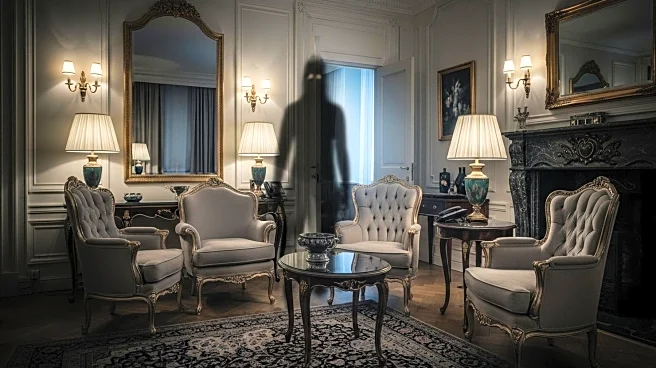What's Happening?
Teoscar Hernandez, an outfielder for the Los Angeles Dodgers, has switched hotels in Milwaukee due to his wife's concerns about ghosts. The Dodgers are in town for Game 2 of the National League Championship
Series against the Milwaukee Brewers. Jennifer Hernandez, Teoscar's wife, expressed her discomfort with staying at the Pfister Hotel, which has a reputation for being haunted. This decision follows a similar move by Dodgers star Mookie Betts two years ago, who also opted not to stay at the Pfister Hotel due to its haunted reputation. Betts, while not a believer in ghosts, preferred not to test the hotel's eerie reputation himself.
Why It's Important?
The decision by Teoscar Hernandez to change hotels highlights the influence of personal beliefs and comfort on professional athletes' choices during high-stakes events like the National League Championship Series. This move underscores how off-field factors can impact team logistics and individual player experiences. The Pfister Hotel's reputation for being haunted has become a notable anecdote among MLB players, affecting their accommodation choices during games in Milwaukee. Such decisions can influence team dynamics and player focus, potentially impacting performance during critical playoff games.
What's Next?
As the Dodgers continue their series against the Brewers, the team will need to ensure that all players are comfortable and focused on the games ahead. The decision to switch hotels may prompt other players to reconsider their accommodation choices based on personal comfort and superstitions. The Dodgers' management might also review hotel arrangements for future visits to Milwaukee to accommodate players' preferences and ensure optimal conditions for performance. The team's focus will remain on advancing in the series, with logistical adjustments being made as necessary.
Beyond the Headlines
The incident with Teoscar Hernandez and the Pfister Hotel reflects broader cultural beliefs and superstitions that can influence professional environments. It highlights how personal beliefs, even those related to the supernatural, can intersect with professional sports, affecting decisions and team dynamics. This situation also raises questions about how sports teams manage player comfort and psychological well-being during high-pressure events, potentially leading to more personalized approaches in team logistics and accommodations.











